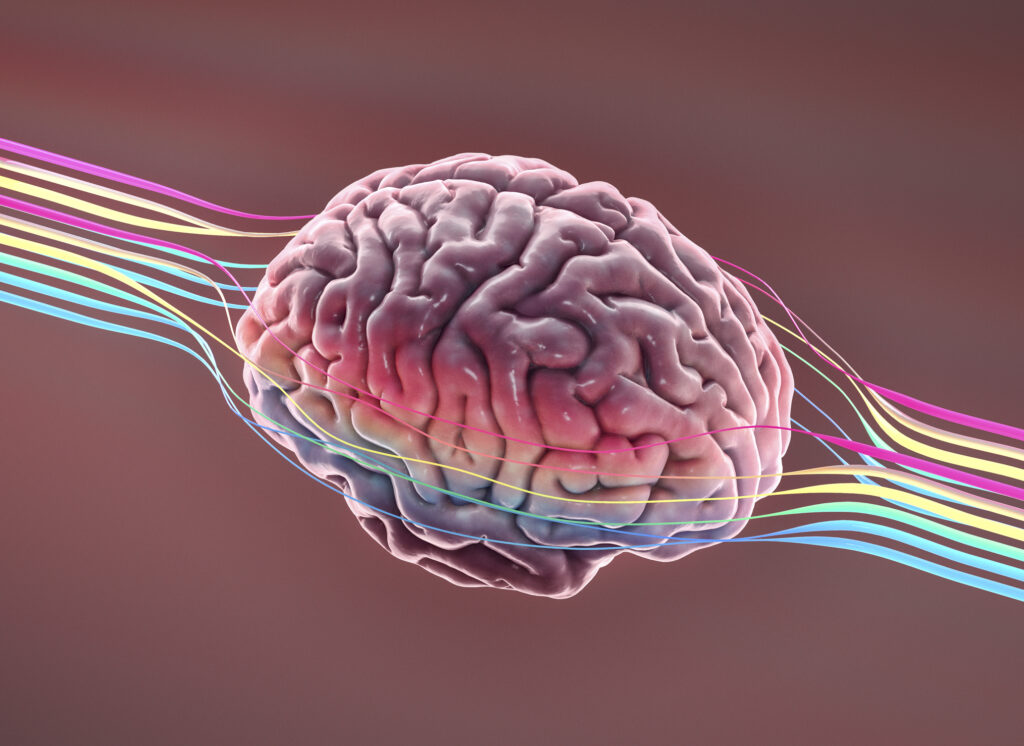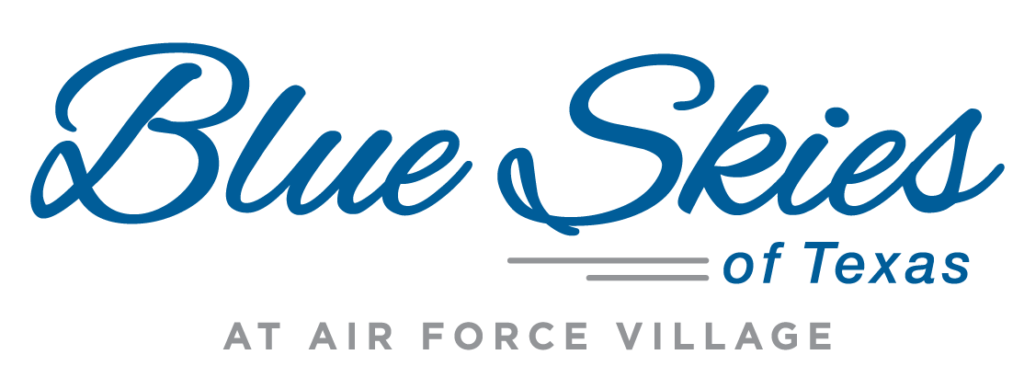
The goal of the study is to establish better methods for reducing anxiety in those living with Alzheimer’s and other memory disorders.
Alzheimer’s disease and other memory disorders have touched many of our lives, but thanks to advancements in medicine and therapies, people with dementia can live longer and happier lives. Alzheimer’s-related research has gained a lot of momentum over the past two decades, and many memory care communities have adapted their approaches based on new findings.
Blue Skies of Texas has been a pioneer in memory care services for over twenty years. Through various research partnerships, Freedom House at Blue Skies of Texas is one of the most renowned memory care communities in the country. Starting in 2022, Blue Skies of Texas, Alzheimer’s Care & Research Center (Freedom House) partnered with the Glenn Biggs Institute for Alzheimer’s & Neurodegenerative Diseases at UT Health for an 18-month study aimed at lessening the stress and agitation associated with memory disorders. With over 200 participants, including residents, family members, staff and area residents, the study allows for observation of both those affected and those not diagnosed with any form of dementia. The study is being conducted by a team led by Biggs Institute founder Dr. Sudha Seshadri.
“We’ve invited people to join several studies, but the main study at Freedom House concerns frequent agitation, with the goal being to better understand therapeutics that can help reduce anxiety and agitation.”
We are also inviting people to join in other observational studies. The Biggs Institute is one of just 33 Alzheimer’s research centers across the country, and the data we collect is shared with the National Alzheimer’s Coordinating Center to answer questions about how the disease might progress in different people.
In addition to Freedom House residents, we have healthy adults who have gotten involved either for themselves or their families. They’re offering the gift of hope by participating in our study. Some of the observational studies will require saliva or blood samples that can be used anonymously with the overall clinical data. However, the focus for this study in a residential community is how to reduce anxiety and agitation and improve quality of life, Dr. Seshadri explained.
A new study for a new decade
This isn’t the first research partnership between UT Health and Freedom House. A study known as the Freedom House Study was conducted by esteemed geriatric psychiatrist Dr. Donald Royall in the early 2000s. His groundbreaking research helped the medical community better understand how to predict age-related functional decline in seniors.
The team at Blue Skies of Texas, including Chief Health Services Officer, Ally Knight agreed it was time for another research partnership. In the years between Dr. Royall’s 2005 study and today, UT Health has launched a new entity, the Biggs Institute for Alzheimer’s and Neurodegenerative Diseases.
“We want to remain a leader in the field. We’ve collaborated with UT Health since the Freedom House Study, but nothing as comprehensive. Previous studies were involved in our renovation, but we felt that with the opening of the Biggs Institute at UT, we should participate with their study because the sole focuses are Alzheimer’s and Dementia. We connected with Dr. Seshadri and her group at the Biggs Institute and started moving forward. Dr. Seshadri visited Blue Skies of Texas and launched the study last summer. Since that time, we’ve been enrolling residents, family members, staff and anyone in the area who wants to participate. We need to observe more than just adults with memory disorders to really start digging in and providing a better-rounded approach to the kind of Alzheimer’s and dementia research upon which we were founded,” explains Ally.
Dr. Seshadri oversees, coordinates, and integrates the research and activities. She has a personal connection to memory disorders after losing her mother to an aggressive form of dementia. She’s devoted her career to researching therapeutics, medications and hopefully one day, a cure.
With cautious optimism, Dr. Seshadri compares advancements made in the treatment of cancer, AIDS and other degenerative diseases to the work being done for Alzheimer’s and Parkinson’s disease. “Take something like melanoma, it used to be a death sentence. Now you can get cured of melanomas. I’m hopeful that in 10-15 years we’ll have a pharmaceutical solution for Alzheimer’s and other dementias. It keeps me going. It’s an exciting time. There have been more drug trials in the past two years than in the previous 10.”
Community support goes a long way
Scientific research relies heavily on funding from outside sources. At Blue Skies of Texas, we’ve devoted ourselves to being an authority on Alzheimer’s and dementia research. Our impeccable reputation inspires people worldwide to donate the funds that support our important work. A recent renovation of Freedom House was partially funded by donors and included circadian lighting and ergonomically designed flooring to prevent falls and slips. These updates were made based on recent findings, suggesting that mimicking outdoor, daylight patterns had a very calming effect on mood for those with memory disorders.
“Freedom House was built, maintained, and renovated entirely on charitable dollars from private donations and grants from foundations around the San Antonio area and throughout Texas. Some major donors here in Texas, that’s for sure,” explains Jennifer Matthews, Blue Skies Director of Development.
“We also have a research fund supporting Freedom House. Those dollars helped with the Freedom House Study and people have been giving to Freedom House Research Fund ever since. Some of our donors are children or spouses of Freedom House residents, people who may not have ever lived at Blue Skies, but they believe so strongly in the work that we’re doing that they still give consistently.”
Freedom House is consistently ranked among the best memory care communities in the United States. If you’re considering memory care for a loved one, we’re here to talk. Call one of our compassionate advisors today at 210-677-8666.


